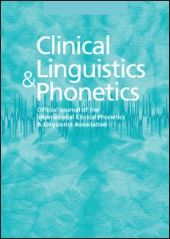Abstract
Current findings from intervention in bilingual aphasia are inconclusive regarding the extent to which levels of language proficiency and degree of linguistic distance between treated and non-treated languages influence cross-language generalisation and changes in levels of language activation and inhibition following treatment. In this study, we enrolled a 65-year-old multilingual speaker with aphasia and administered treatment in his L1, Dutch. We assessed pre- and post-treatment performance for seven of his languages, five of high proficiency and two of lower proficiency. We asked whether treatment in L1 would generalise to his other languages or increase interference among them. Forty hours of treatment were completed over the course of five weeks. Each language was tested three times at pretreatment and at post-treatment. Testing included measures of narrative production, answering questions, picture description and question generation. Dependent measures examined language efficiency, defined as Correct Information Units (CIUs)/min, as well as language mixing, defined as proportion of code-mixed whole words. We found that our participant’s improved efficiency in Dutch was mirrored by parallel improvement in the four languages of high proficiency: English, German, Italian and French. In contrast, in his languages of lower proficiency, Norwegian and Spanish, improved efficiency was limited. An increase in code-mixing was noted in Spanish, but not in Norwegian. We interpret the increased code-mixing in Spanish as indication of heightened inhibition following improvement in a language of close linguistic proximity, Italian. We conclude that an interaction of language proficiency and linguistic similarity affects cross-language generalisation following intervention in multilingual aphasia.
Access the article on the homepage of Clinical Linguistics & Phonetics.
